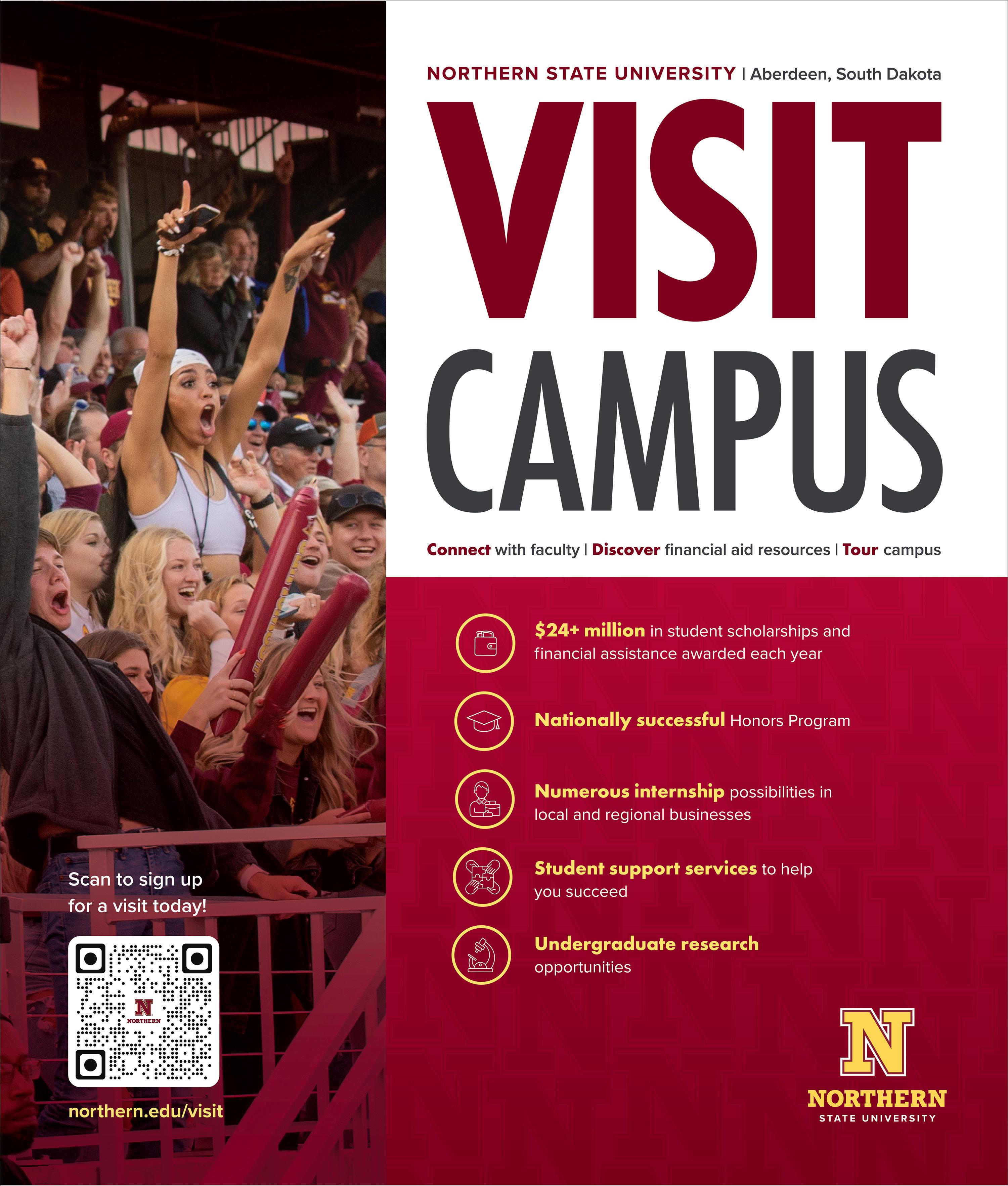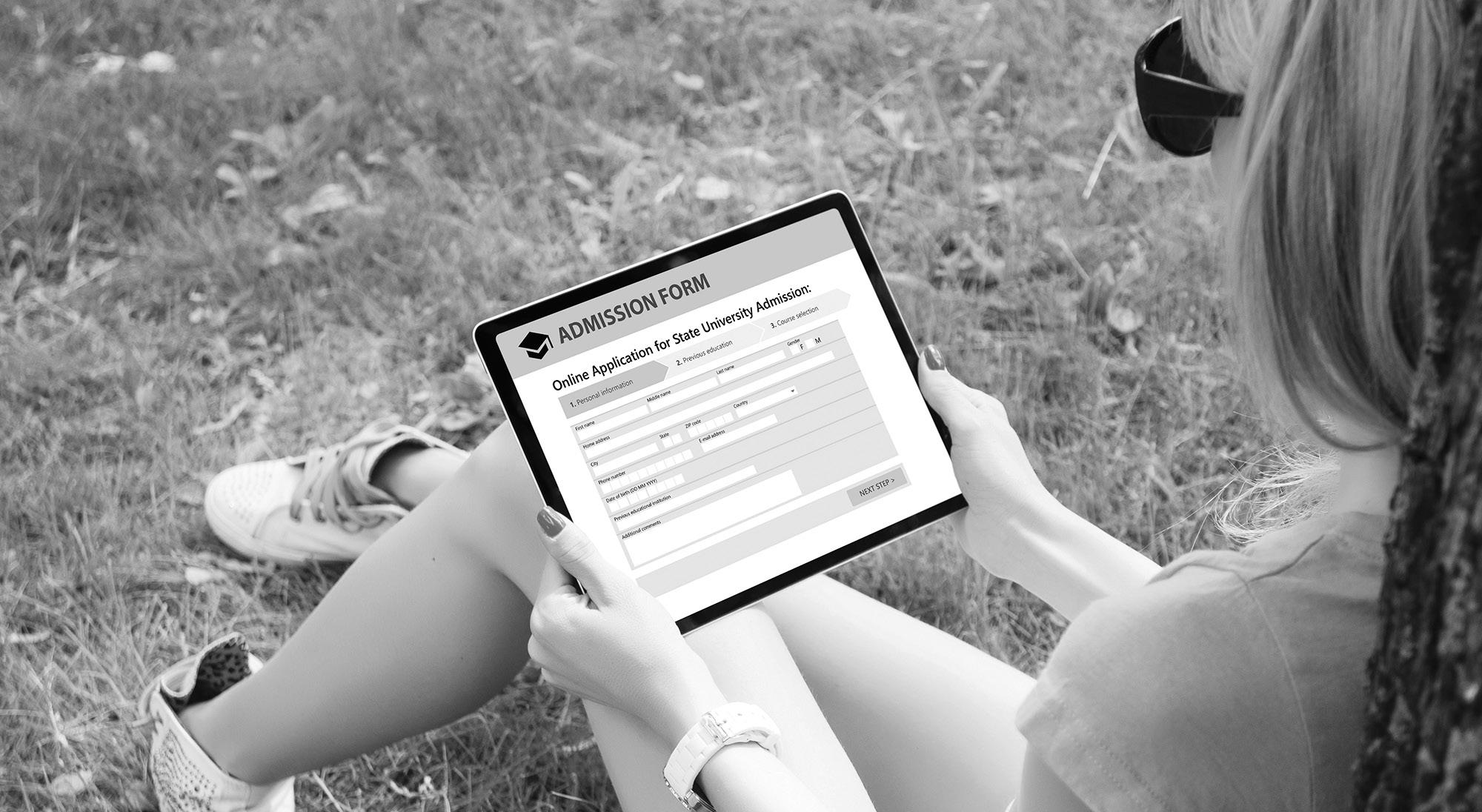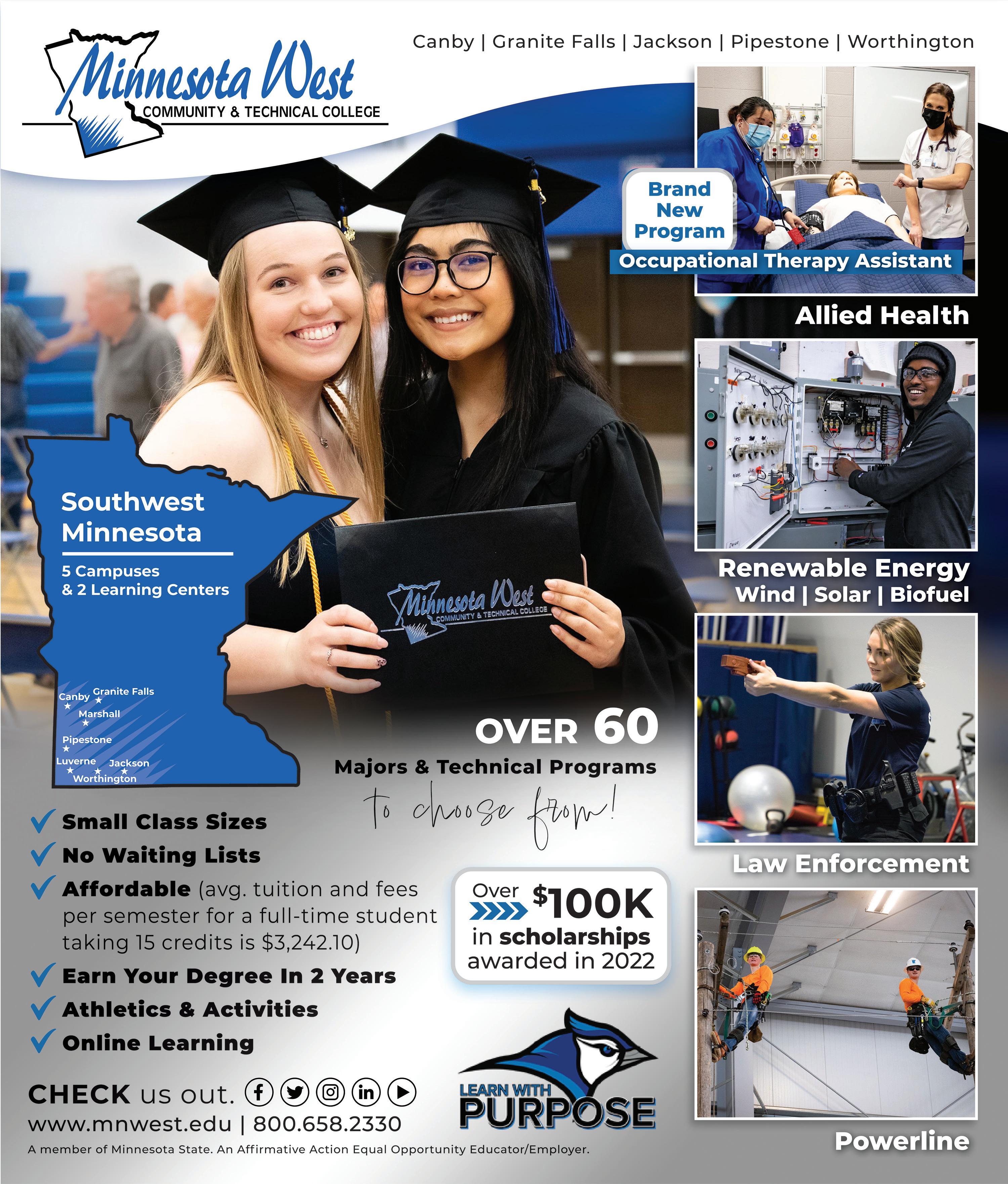




The COVID-19 pandemic lead to an enrollment decline at colleges, the Chronicle of Higher Education says, but it can still be tough to get into your school of choice.
HERE ARE SOME TIPS FOR GETTING INTO THE SCHOOL OF YOUR CHOICE.
There’s an old axiom that no one hires you based on your high school algebra grade. And that may be true, but colleges do look at those things when they’re deciding to admit you. Get the best possible grades you can all four years of high school. Challenge yourself by taking tough courses, such as honors classes, Advanced Placement courses and International Baccalaureate classes.
You want the highest score you can get on the ACT and SAT, so take the test as many times as you can. Take the PSAT during your sophomore year and take advantage of free SAT and ACT study materials, study guides, practice tests and prep courses before taking the tests your junior and senior year. Take both the SAT and the ACT, and leave yourself time to take them more than once. You should also take SAT Subject Tests and AP tests.
Don’t leave your admissions essay until the last minute. Think carefully about the topic and reflect on it before you write. Edit, rewrite, edit again. Convey who you are in your writing and make yourself stand out from the crowd. Ask for feedback from your teachers, counselors and other trusted adults.

Colleges like to see active, engaged students. One way you can show that is through community involvement. Show that you were active in extracurricular and co-curricular activities during all four years of high school and during summer vacations. Volunteer, participate in sports, take on leadership roles. You should demonstrate growth in your journey and develop talent in more than one area.
You should start your college search early, no later than the start of your junior year. Research the schools you are interested in, complete applications, write essays and make sure you have time to take all the necessary exams.
Ask for help from your school counselor and teachers. Don’t be afraid to ask questions, even if they seem simple.
Somewhere in the big pile of paperwork that you filled out when you started school was a FAFSA, a Free Application for Federal Student Aid form.
It’s the piece of paper that qualifies you for loans, grants and even a few scholarships. But there’s a lot more out there that the FAFSA might miss. And it’s important because scholarships are a gift that doesn’t need to be repaid later, unlike loans. Schools, employers, churches, companies, nonprofits and more all offer different kinds of scholarships for all kinds of reasons.
Some scholarships are merit-based, meaning that you earn them by meeting or exceeding standards set by the group or person giving the scholarship. They can be based on academic or personal achievement, or a combination thereof. You might get one for a talent, a sport or anything else you do well at.
Scholarships based on financial need address the gap left between what you and your family can pay and what schools cost. No matter your grades, if you and your guardians’ income meets a certain threshold, you can qualify for these scholarships.

A third group of scholarships targets groups of people, such as military families, people from a certain religion, women, graduate students and more. If you can think of a way to group people, there’s probably a scholarship for it. No matter your income or grades, if you fit into that group, you are eligible for the scholarship.
That depends on the award and the people giving it. Some scholarships only cover room and board in certain dorms, for instance, or may only apply during one semester. Other gifts span the whole time you’re in school, but may only cover tuition, not fees or room and board. All of them are worth your time and energy, because that’s money you won’t have to pay back later.
Contact your school’s financial aid office and ask about scholarships you can apply for. They probably have a comprehensive list. You can also check at the public library, your high school counselor, federal agencies, your parents’ employers, with your town’s government or online. Be careful; some scholarship sites look real but are just ways to get your information for nefarious purposes.

Dorm rooms are small spaces but furnishing them with everything you need can be overwhelming. Make every square inch of your dorm room count with these essentials.

Grab a bed-in-a-bag set that will give you a comforter, fitted sheet, flat sheet, dust ruffle and pillowcases all in one convenient package. Be sure to get the right size for your dorm’s bed; most dorm rooms come with twin extra long beds. You’ll also want a quality mattress topper, because those ancient dorm mattresses have seen a thing or two. Again, look for the correct size for your mattress and be prepared that fewer brands may offer the twin extra long.
Rugs dampen sound in your dorm room (important for your neighbors) and give you an opportunity to add a pop of color in an otherwise dull space. Look for options that are washable for easy clean up. Keep it clean with an itty-bitty cordless vacuum. Good Housekeeping recommends the Bissell AeroSlim Lithium Ion Cordless Handheld Vacuum ($40).
Grab a set of plates, bowls and mugs that are microwave and dishwasher safe. Flatware is the same, and it’s even better if they come with a rack to hang it on to save drawer space. You’re also going to need some small appliances — check your dorm’s rules first — like a coffee maker, kettle, microwave, coffee maker, hot plates, a coffee maker and did we mention a coffee maker? Single-serve models are tiny and clean up is easy, too.
Your dorm may come with built-in drawers and closets, but chances are you’re going to need to augment that with your own storage. Grab a set or two of plastic storage drawers, colorful storage bins, and an overthe-door organizer or two to keep your space tidy. Think strategically about storage. You don’t have a lot of room and you need to make every inch count.
Yes, yes, tees and jeans and shorts and dresses, but also shower shoes (especially if there’s a communal shower), a bath robe, a shower caddy and some towels. You can ditch the ironing board and iron, probably, but do stock up on wrinkle release spray.

About a third of college students will change their major sometime during their college careers, the U.S. Department of Education says, and about one in 10 will change majors more than once.
Students who change majors frequently risk loosing valuable class credits and time as they move from program to program, so it’s important to make as few changes as possible once you get started.
Your major determines much more than what career you may tackle after you graduate. Many students join clubs related to their major and take the same classes with the same people throughout their academic career, leading to lifelong friendships. Make sure that your major aligns with your passion and values, because it’s going to be a big part of your life for the next four or even more years.

When you’re looking at colleges, also consider how the majors you’re thinking about are taught there. Some colleges have a better reputation than others in certain subject areas, and that can lead to more opportunities down the road. You should also know if your chosen major will require more education, such as a graduate or even postgraduate degree for you to be successful. It may also help if you declare your major on college applications so that recruiters get a full picture of what you bring to an incoming class.
In addition to choosing a major, you’ll need to pick a minor, too, and you should be careful to choose one that reinforces skills across
disciplines and prepares you to work in more than one industry. Micah Sadigh, a psychology professor, told U.S. News & World Report that he considers a minor “an interdisciplinary link” that expands how you think not only academically, but also about life and creativity.
You should definitely consider what people in your major make after college, but don’t fixate on that. Graduates may take the skills they learned and put them to work in different, better-paying industries. Make sure that your first job out of school is one where you can learn and grow, not just get paid well. In the long run, what you’ve learned may count for a lot more than what you’ve earned.
Leaving home for the first time to go to college is a huge milestone that comes with new responsibilities, such as managing your own money.
College is a good time to learn how to budget, especially if you’re living in the dorms and using the meal plan, which takes care of two of your biggest expenses.

Your credit score may be even more important than your GPA once you graduate. It’s a number that tells lenders how likely you are to pay back a loan. The higher the number, the better. Everyone from banks to landlords to potential employers will pull your credit, so it’s important you start building up a good credit score now. Get a card or have your parents add you as an authorized user. Avoid carrying debt and pay the card off in full every month.
Create a spending (and saving!) plan that meets your needs and
track how you’re doing every month. There are tons of apps and websites out there that help you do this and, once you get the hang of it, it becomes a great habit that will serve you well in the real world. If you learn this while your life is still relatively simple, it’s easier to manage when things get complicated by homes, investments, marriage and children.
In that budget, make sure you plan for emergencies. If you have a car, plan to set aside money for repairs and maintenance. Have a pet? Plan for illnesses, prescriptions and veterinary visits. There’s no set number you need to save, but you should have some set aside in case the worst happens. Just knowing it’s there will relieve some stress.
If you save up enough, you can learn how to invest it and let it earn money for you. Look at tax-free accounts, such as IRAs. Avoid using alternative investments and financial adviser apps and stick with the tried-andtrue. You don’t have much of a nest egg and it’s important to keep it safe. Notice how the markets and fees affect your investments and remember that this is a good time to try new things, cautiously.
Your first time away from home may mean the first time you have to deal with living with someone who’s not a family member.
Roommates are great in that they cut down on your out-of-pocket costs, especially if you’re renting an apartment, but they take some getting used to. Here are some tips for living your best life with a roommate.

You can head off all sorts of roommate troubles by setting clear boundaries in common trouble spots. Take, for instance, cleaning your abode. You and your roommate probably have different ideas of clean, so it’s important to get that out there before it becomes a problem. Divvy up responsibilities and set a clear schedule of who is responsible for what when.
Another potential pothole is having company. Establish rules about having friends over, especially significant others. Some questions to ask include the following:
• What is the time limit for guests?
• Can significant others spend the night?
• How can you tell the other person that you would appreciate some privacy?
• Should you set a lights-out time?
Once you’ve hashed out some rules, write them down and sign them. It may seem juvenile, but it will help keep you both accountable. This agreement can serve as a starting point if further discussions are needed.
No matter how careful you are, college is a stressful time and there’s bound to be conflicts. Working through them builds valuable life skills and can strengthen friendships, if you do it the right way. If you have a problem with your roommate, set up a time to talk in person so that they don’t feel ambushed and there’s less of a chance of them misconstruing what you say in a text or on social media.
Once you have their attention, focus on one problem at a time and be ready with suggestions of how to solve the problem. Talk about the behavior, not the person. Instead of: “It’s rude of you to use all of the hot water in the morning in your three-hour shower,” try “I don’t have any hot water for my morning shower. Can you try showering at a different time or setting a timer to save water?” Your roommate may not even realize how their behavior affects you.
Lastly, remember to listen to their side of the story. It’s probably not that they’re deliberately out to annoy you with cold showers. They may have reasons for their behavior that you haven’t considered. Try to remember how you would want to be treated if the roles were reversed.
If you’ve graduated from the dorms, it’s time to look for your first apartment.
Start looking as early as you can to get the best rent and amenities, and the best location. Keep reading for more tips on looking for your first college apartment.

The first step to finding an apartment is to figure out what you can afford. Plan to spend 30% to 40% of your budget on rent, then work backwards. You’ll need to figure in about 18% of your budget for utilities, 14% for food and up to 15% on transportation, depending on how far you live from campus. Entertainment and health care should account for 9% of your budget, and you should also plan to save for a rainy day. You’ll also need to put down the first and last month’s rent, most likely, as well as a security deposit, pet deposit and holding fees.
Visit at least three apartments, even if you like the first one you see. That unit may be rented to someone else or you may find that one didn’t present as well on paper as it does in person. Make a checklist of what to look for, such as paid utility costs, pools, high-speed internet, natural
lighting and more. Also consider how the complex is managed. Look for telltale signs of mismanagement, including burnt-out lights, peeling paint and absent security.
Once you’ve found a home, be ready to put down a deposit as soon as you can. First-time renters may need to have a co-signer, so be prepared to have someone else with strong credit at the ready to help you out. And before you put down the deposit and sign the lease, make sure you read and understand it, including when the rent is due, the amount of the security deposit and how maintenance issues are handled.
You may also need your Social Security card, bank statements, pay stubs and any rental information you may have. In competitive markets, you may even be asked for personal references.

